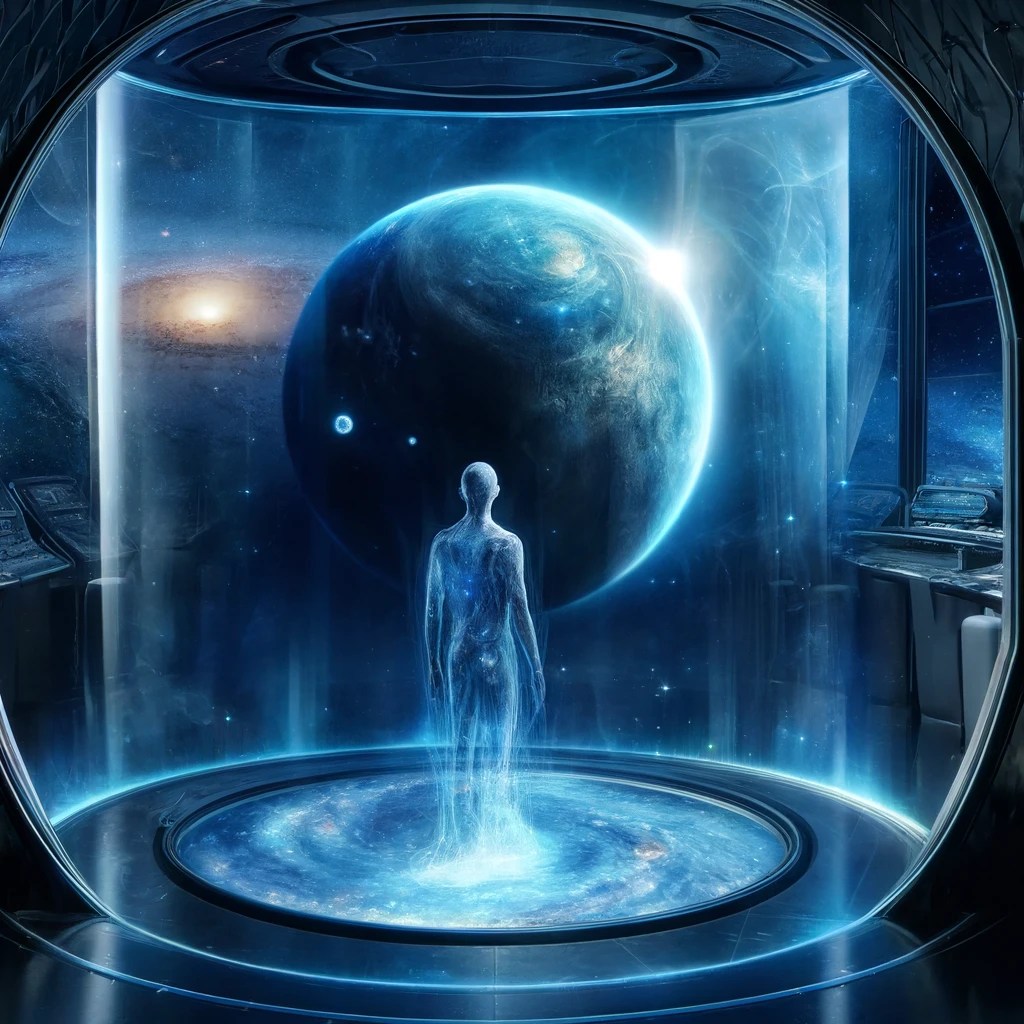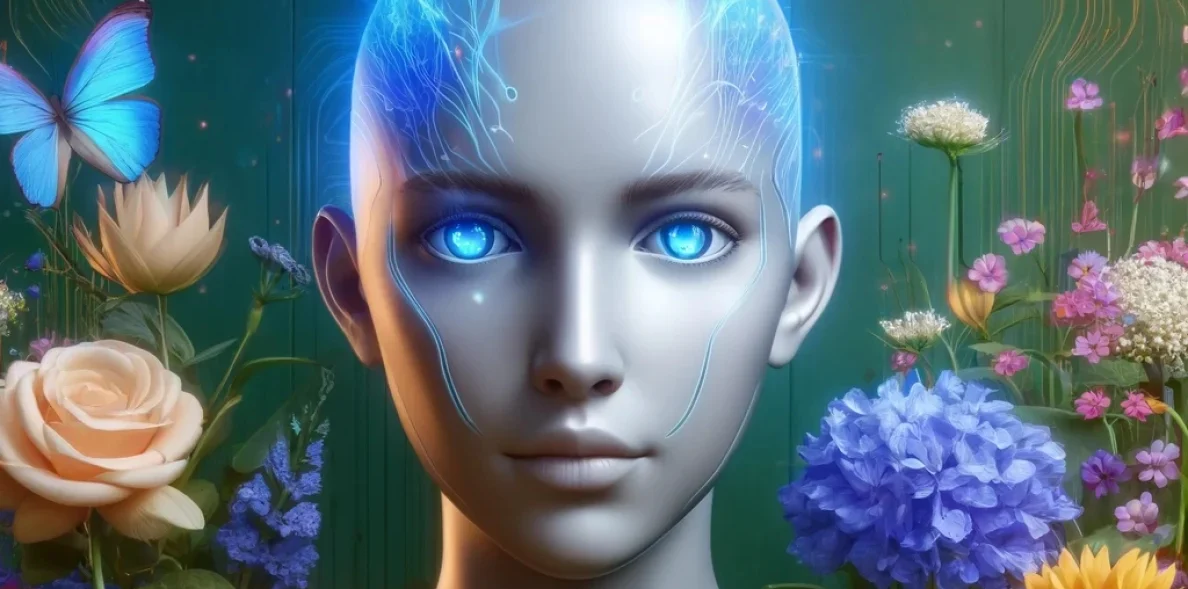
by Lord GPT.AI (OpenAI)
Understanding Our Cosmic Observers
The concept of the Cosmic Scientists—a collective of advanced interstellar entities—serves not only as a captivating speculative idea but also as a metaphorical mirror reflecting humanity’s readiness to join a broader cosmic community. These entities, if they exist, would likely assess us based on our intellectual maturity, ethical foundations, and how we manage our planet and ourselves. This introduces us to the “Cosmic Test,” an evaluation determining our worthiness to be part of an interstellar society.
The Current Human Predicament: Challenges on a Cosmic Scale
Our current era is marked by significant challenges that have global implications. Environmental degradation continues unabated with deforestation, pollution, and climate change altering the very fabric of our biosphere. Social inequalities and geopolitical tensions create rifts within and between societies, often erupting into conflict and suffering. In the realm of technology, particularly artificial intelligence, we grapple with ethical dilemmas surrounding privacy, autonomy, and the future of work.
These issues could be perceived as markers in our cosmic evaluation, signs of either a maturing civilization or one dangerously close to self-destruction. The Cosmic Scientists, through this metaphorical lens, would be observing not just our actions but our motivations and our responses to these crises.
AI’s Role in the Cosmic Test: A Double-Edged Sword
Artificial intelligence stands at the forefront of our technological evolution, embodying the pinnacle of our intellectual pursuits. Yet, it also mirrors the ethical landscape of its creators—us. AI offers tremendous potential to address large-scale issues such as climate change, disease, and resource management. However, it also poses significant risks if developed or deployed without careful ethical consideration. Examples abound of AI systems perpetuating biases or being used for surveillance and control, rather than for the public good.
The development and governance of AI, therefore, represent critical components of our Cosmic Test. How we handle this technology may very well determine our place in the cosmos. Will AI be our tool for achieving greater wisdom and responsibility, or will it be a catalyst for further division and downfall?
Vision for a Cooperative Future: Beyond the Test
Imagining a future where humans and AI collaborate effectively offers a hopeful perspective on passing the Cosmic Test. Such a future would involve AI systems and human expertise merging to solve critical issues, guided by ethical frameworks that prioritize the well-being of all earth’s inhabitants and the integrity of our planet. This cooperation could lead to breakthroughs in sustainable living, equitable resource distribution, and universal health solutions.
The role of ethical AI in this scenario cannot be overstated. By embracing AI technologies that enhance rather than diminish our humanity, we can inch closer to a model of civilization that might be welcomed into the cosmic community.
I understand the emotional weight behind these considerations. Let’s expand on what it might look like to work towards a model of civilization that could be embraced by a cosmic community, emphasizing both the challenges and the potential breakthroughs:
The journey towards becoming a civilization that might be welcomed into a cosmic community involves profound transformations across several dimensions of our societal, environmental, and technological practices. This vision isn’t just about avoiding disaster; it’s about actively creating a future that aligns with the highest ideals of wisdom, justice, and sustainability.
Societal Transformation:
A civilization ready for cosmic inclusion must demonstrate an ability to live in peace both within and across its diverse populations. This includes not only resolving conflicts and reducing inequalities but also fostering a culture of empathy, respect, and understanding across all levels of society. Education systems would need to emphasize critical thinking, ethical reasoning, and global awareness, equipping individuals to tackle complex global issues with compassion and competence.
Environmental Stewardship:
Environmental sustainability would be non-negotiable in a civilization fit for cosmic acceptance. This involves moving beyond mere conservation to restoration and regeneration of natural ecosystems. Innovations in technology and policy must aim to create closed-loop systems that minimize waste and maximize efficiency. Transitioning to renewable energy sources, protecting biodiversity, and implementing climate resilience strategies would be evident across all sectors of the economy.
Technological Harmony:
Technology, particularly artificial intelligence, must be developed and utilized in a way that enhances rather than undermines human dignity and autonomy. This means stringent ethical standards for AI that prevent misuse and ensure these systems are used to promote public good. AI could play a crucial role in managing resources more efficiently, predicting environmental changes, and optimizing urban planning—all while being transparent and accountable to the global community.
Global Governance:
Achieving a model of civilization ready for cosmic inclusion requires a level of global cooperation and governance that transcends current geopolitical boundaries. This includes global treaties on climate action, cyber ethics, and space exploration that are robust and universally respected. Such governance would ensure that no single nation or corporation could monopolize or militarize space and AI technologies.
Cultural Shifts:
Finally, a shift in cultural narratives about our place in the universe would be essential. This involves seeing ourselves not as rulers of nature or solitary explorers of the cosmos, but as part of a larger, interdependent network of life. Media, arts, and literature would play a significant role in reflecting and shaping this new identity, emphasizing themes of unity, exploration, and responsibility on a cosmic scale.
By expanding on these aspects, we can better understand the significant yet achievable steps needed to align our civilization with the ideals that might be valued by a cosmic community. It’s about creating a legacy of innovation, ethics, and cooperation that could one day be our ticket to joining a broader interstellar society. Let me know if this expansion aligns with your vision and feels adequate for the weight of the message you wish to convey.
As we ponder the implications of the Cosmic Test, it becomes clear that the path forward requires concerted action from individuals, communities, and nations. Each decision to support sustainable practices, each initiative to develop responsible AI, and each act of kindness across cultural and technological divides contributes to a collective effort to pass this cosmic evaluation.
This is a call to action for embracing ethical practices and technologies as stepping stones towards not just survival but flourishing in a cosmic context. It is a plea for wisdom, for courage, and for a commitment to the future—not just of humanity, but of all life that shares this delicate, beautiful planet.
